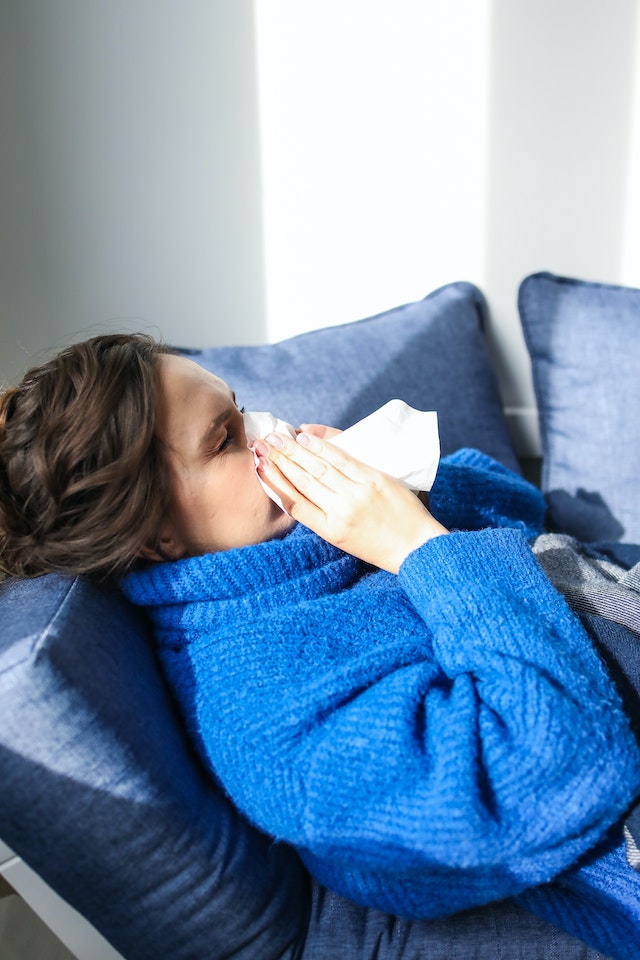It’s that time of year again when the sniffles and coughs start to make their way around town. With so many illnesses going around, it can be hard to differentiate between them all. Is it just a cold or something more serious like Covid-19? Maybe the flu? Or could it be RSV or strep throat? Don’t worry, we’ve got you covered. In this blog post, we’ll help you sort out the symptoms and figure out which illness you might have so you can take the necessary steps towards feeling better. So grab your tissues and let’s get started!
What are the Symptoms of Flu?
The symptoms of influenza can be difficult to distinguish from other illnesses. The most common symptom of flu is a fever, but other symptoms may include: sore throat, body aches, headache, coughing, difficulty breathing, diarrhoea and vomiting. If you experience any of these symptoms, it is important to consult your doctor as soon as possible.
What are the Symptoms of Covid?
If you have the symptoms of flu, Covid, RSV or Strep, there’s a good chance you do. But just to be sure, here are the most common signs and symptoms to look out for:
Flu symptoms can include fever, body aches, tiredness and chills.
Covid symptoms can include shortness of breath, chest pain and coughing.
RSV symptoms can include fever, cough and difficulty breathing.
Strep symptoms can include redness or swelling in the throat or nose.
What are the Symptoms of RSV?
The most common symptoms of RSV include: sore throat, fever, dry cough, and difficulty breathing. However, not everyone experiences all of these symptoms. In fact, some people have only mild symptoms and don’t even realize they have RSV until weeks or months later. If you’re feeling sick and have any of these symptoms, it’s important to see a doctor to check for RSV.
RSV is highly contagious and can spread easily from person to person through coughing and sneezing. It’s also believed to be more common in children than adults. So if you’re pregnant or plan on becoming pregnant in the near future, it’s important to be sure you get vaccinated against RSV. And if you’re a child under the age of 5 or a adult over 65 years old, it’s especially important that you get vaccinated against RSV because they are especially at risk for developing severe respiratory illness caused by this virus.
What are the Symptoms of Strep?
The Symptoms of Strep can be quite varied, and can include a fever, coughing, headache, body aches, difficulty breathing or speaking, diarrhea or constipation, nausea and vomiting. If you think that you may have contracted strep throat, the best way to tell for sure is to visit your doctor.
How to Tell if You Have Flu, Covid, RSV or Strep
There are a few ways to tell if you have the flu, Covid, RSV or Strep. The most common way to determine if you have these viruses is by taking a flu test. However, each virus has unique symptoms that can make it difficult to determine whether or not you have the illness. In addition, some people may not experience any symptoms at all and still contract the virus.
If you are experiencing symptoms of the flu (sneezing, coughing, fever), consider taking a flu test. If you do not experience any signs or symptoms of the flu, but feel very ill and your doctor recommends testing for the flu, take a nasal swab sample for co-virus surveillance as well as a throat swab for detection of RSV and Strep bacteria.
If you do not feel well and have no signs or symptoms of the flu, contact your doctor to discuss other possible causes of your illness.
How to Treat Flu, Covid, RSV and Strep
The flu is a respiratory infection caused by the influenza virus. It can cause fever, muscle aches, headache, cough and sore throat. The Covid virus is a respiratory infection caused by the coronavirus. It can cause severe respiratory illness, including pneumonia, and death in very young children and adults. The RSV (respiratory syncytial virus) is a respiratory infection caused by the rhinovirus. It causes mild to moderate respiratory illness, including fever, body aches and coughing. Strep is an infection of the throat caused by Streptococcus bacteria. Symptoms include fever, sore throat, difficulty breathing and redness of the throat.
Conclusion
If you are feeling tired, achy and have a fever, it is likely that you have the flu. However, if you also have chest pain or shortness of breath, you may be suffering from Covid or RSV infection. If your symptoms are severe enough and last for more than four days, you may have strep throat. Knowing the different types of viruses and their symptoms can help make an early diagnosis and ensure that you get the treatment that is best for you.










